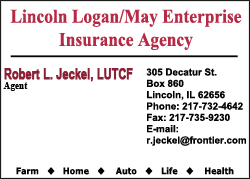 Jacob Sexton, the executive director of Community Action, spoke to
the board as to the early popularity the transportation program has
been experiencing. Predominantly, riders have been senior citizens,
those who live in group homes and the developmentally disabled.
Riders arrange in advance for transportation, with standing
appointments preferred. Jacob Sexton, the executive director of Community Action, spoke to
the board as to the early popularity the transportation program has
been experiencing. Predominantly, riders have been senior citizens,
those who live in group homes and the developmentally disabled.
Riders arrange in advance for transportation, with standing
appointments preferred.Sexton reiterated that the program is not
even a year old, and he believes it has already been a great asset
to the county.
"Our position is such that we are creating economic development,
in the sense that we are providing jobs for the drivers that work
and live within Logan County; we are providing self-sufficiency for
those that we transport for medical purposes; we are promoting job
growth to the businesses that we take our clients to," said Sexton.
Gene Rohlfs asked Sexton how large the Community Action budget
would be for the program next year.
Sexton said the transportation program alone will operate on a
budget of $500,000.

Rohlfs asked Sexton how much revenue from fares was brought in by
the program.
Sexton reiterated that this is a not-for-profit program and said
that fares so far have brought in $9,000. Sexton said the money
generated by fares is used to partially offset expenses of the
program.
Rohlfs said that such a program is set up to be a financial loss,
calling it a "government giveaway program."
Sexton replied that from Community Action's perspective, the
program is stimulating growth within the communities, and the amount
of money that goes into sales taxes that are being spent and work
that is done by the people who are being transported is worth the
expense.
Sexton also said that central Illinois and other rural areas are
seeing a large increase in popularity of public transportation.
Rohlfs said that is his reason for concern, and if more rural
areas gain this type of not-for-profit transportation, the cost will
become too high for any governing body.
[to top of second column] |

Terry Carlton said he feels it is important for such a program to
exist in order for members of the community who are limited by a
lack of transportation to get where they need to be to improve their
own lives, such as furthering their education. Carlton emphasized
the importance of working with colleges in the near future, so
younger people can receive an education locally, earn better jobs
and bring better businesses to the community.
Sexton said that Community Action is working on reaching out to
local colleges to potentially create contracts for transportation in
the future.
Chuck Ruben said that while he does agree that the program will
continue to be an asset, there are still questions that need to be
answered concerning the legislation that runs the program before a
definitive vote can be made by the board. Multiple board members
agreed with Ruben's reasoning.
A motion was unanimously passed by the board to refer the
discussion back to committee next month.
One of the unknowns is that of the new position that will have to
be created to oversee the finances of the program.
While the program is running in a two counties, Logan County will
specifically act as the recipient of the grant that funds the
transportation program. As a result, Logan County will have to
provide the employee who will spend a majority of their time
monitoring the process of expenditures. The position is referred to
as the PCOM officer, for project compliance and oversight
management.

Angie Jenkins, also of Community Action, said they did not even
know such a position would need to be created until they were
contacted by the county board.
[By DEREK HURLEY]
|